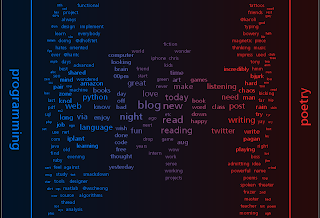Lost Horizons by Larry Becker
Where are you now oh friends of youth?
I wonder in sad reflection.
Have we lost the key that we once used
to open the doors-of-perception.
Remember when we saw the world
in colors without names,
and looked into eternity
inside the campfire's flames.
What merry pranksters we were then,
and what experiences we knew,
as we saw the worlds that might-have-been,
like stars in a drop-of-dew.
But somewhere down some forest path
where the road had forked-in-two,
we missed the one that might-have-led,
us to Xanadu.
But sometimes when the night is dark
but the moon is shining clear,
I feel like the ancient's wedding guest
who 'cannot choose but hear',
or like some westward pioneer
who first viewed the great herds of bison.
Then do the mists roll up again
and I glimpse the Lost Horizon.
I wonder in sad reflection.
Have we lost the key that we once used
to open the doors-of-perception.
Remember when we saw the world
in colors without names,
and looked into eternity
inside the campfire's flames.
What merry pranksters we were then,
and what experiences we knew,
as we saw the worlds that might-have-been,
like stars in a drop-of-dew.
But somewhere down some forest path
where the road had forked-in-two,
we missed the one that might-have-led,
us to Xanadu.
But sometimes when the night is dark
but the moon is shining clear,
I feel like the ancient's wedding guest
who 'cannot choose but hear',
or like some westward pioneer
who first viewed the great herds of bison.
Then do the mists roll up again
and I glimpse the Lost Horizon.

